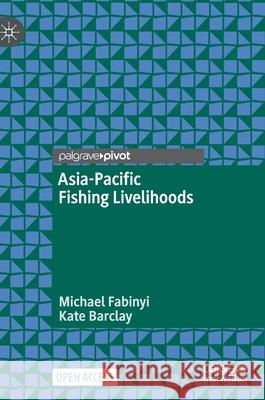Asia-Pacific Fishing Livelihoods » książka
topmenu
Asia-Pacific Fishing Livelihoods
ISBN-13: 9783030795900 / Angielski / Twarda / 2021 / 126 str.
Kategorie:
Kategorie BISAC:
Wydawca:
Palgrave Pivot
Język:
Angielski
ISBN-13:
9783030795900
Rok wydania:
2021
Wydanie:
2021
Ilość stron:
126
Waga:
0.31 kg
Wymiary:
21.01 x 14.81 x 0.97
Oprawa:
Twarda
Wolumenów:
01
Dodatkowe informacje:
Wydanie ilustrowane











